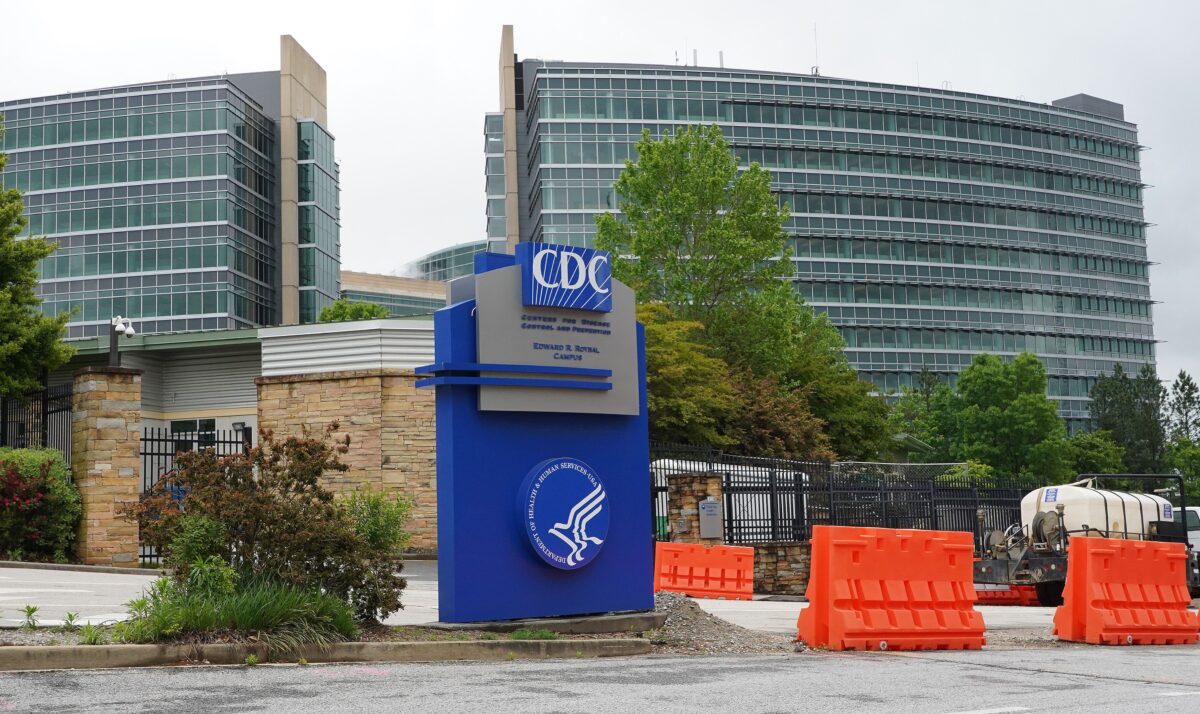More Than 140 Million Americans Have Had COVID-19: CDC
Some 140 million Americans have had COVID-19 in the past, according to data from the Centers for Disease Control and Prevention (CDC). The estimate is drawn from blood tests and would mean 43 percent of the American population has strong and long-lasting protection against COVID-19, the disease caused by the CCP (Chinese Communist Party) virus. The blood samples are from commercial laboratories that have been working with the CDC to conduct seroprevalence surveys. They are testing for antibodies to the CCP virus, also known as SARS-CoV-2. About 6 percent of the U.S. population was estimated in August 2020 to have antibodies to the virus. That number crept up over time, and jumped from 33.5 percent to 43 percent between December 2021 and late January, the latest results reported. Nearly 60 percent of children 18 or younger have had COVID-19, according to the estimates, along with close to half of Americans aged 18 to 49, 37 percent of people aged 50 to 64, and a little under a quarter of those 65 and older. In 13 states, a majority of residents are estimated to have had COVID-19. In 19 others, more than 40 percent of residents are pegged as having had the disease. Wisconsin has the highest estimate, 56 percent. Vermont has the lowest, 18 percent. Estimates for four states weren’t listed because labs in those states didn’t provide an adequate number of samples. Studies show that COVID-19 infection provides high protection against reinfection and severe disease if reinfected. Many studies suggest the protection is higher than that bestowed by COVID-19 vaccines. The protection from vaccines and prior infection have been less effective against the Omicron virus variant, which displaced Delta as the dominant strain in December 2021, but prior infection is holding up better so far. Research has found that natural immunity lasts at least 20 months past infection. A growing number of experts want the CDC to count prior infection as some or all of the recommended vaccine doses. The CDC says on its website that some of the people who have a detectable amount of antibodies may not have sufficient protection. Some studies have indicated that mild or asymptomatic infections may not confer strong immunity, though that is contested ground among scientists. A separate estimate, which counts protection from both vaccination and prior infection, estimated nearly 95 percent of the U.S. population as of December 2021 has some form of protection against the CCP virus. As of March 1, about 76 of Americans have received at least one dose of a COVID-19 vaccine as of March 1, 65 percent have gotten fully vaccinated, and 44 percent have received a full vaccination schedule and a booster dose.

Some 140 million Americans have had COVID-19 in the past, according to data from the Centers for Disease Control and Prevention (CDC).
The estimate is drawn from blood tests and would mean 43 percent of the American population has strong and long-lasting protection against COVID-19, the disease caused by the CCP (Chinese Communist Party) virus.
The blood samples are from commercial laboratories that have been working with the CDC to conduct seroprevalence surveys. They are testing for antibodies to the CCP virus, also known as SARS-CoV-2.
About 6 percent of the U.S. population was estimated in August 2020 to have antibodies to the virus. That number crept up over time, and jumped from 33.5 percent to 43 percent between December 2021 and late January, the latest results reported. Nearly 60 percent of children 18 or younger have had COVID-19, according to the estimates, along with close to half of Americans aged 18 to 49, 37 percent of people aged 50 to 64, and a little under a quarter of those 65 and older.
In 13 states, a majority of residents are estimated to have had COVID-19. In 19 others, more than 40 percent of residents are pegged as having had the disease.
Wisconsin has the highest estimate, 56 percent. Vermont has the lowest, 18 percent.
Estimates for four states weren’t listed because labs in those states didn’t provide an adequate number of samples.
Studies show that COVID-19 infection provides high protection against reinfection and severe disease if reinfected. Many studies suggest the protection is higher than that bestowed by COVID-19 vaccines.
The protection from vaccines and prior infection have been less effective against the Omicron virus variant, which displaced Delta as the dominant strain in December 2021, but prior infection is holding up better so far.
Research has found that natural immunity lasts at least 20 months past infection. A growing number of experts want the CDC to count prior infection as some or all of the recommended vaccine doses.
The CDC says on its website that some of the people who have a detectable amount of antibodies may not have sufficient protection. Some studies have indicated that mild or asymptomatic infections may not confer strong immunity, though that is contested ground among scientists.
A separate estimate, which counts protection from both vaccination and prior infection, estimated nearly 95 percent of the U.S. population as of December 2021 has some form of protection against the CCP virus.
As of March 1, about 76 of Americans have received at least one dose of a COVID-19 vaccine as of March 1, 65 percent have gotten fully vaccinated, and 44 percent have received a full vaccination schedule and a booster dose.












